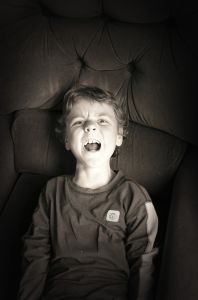 Anger of course! Who wouldn’t be angry having their lives turned upside down? A child with an attachment disorder usually feels like life is all buck luck for them. Often a child with an attachment disorder resents all the past rejection and abandonment feelings they have learned to accept.
Anger of course! Who wouldn’t be angry having their lives turned upside down? A child with an attachment disorder usually feels like life is all buck luck for them. Often a child with an attachment disorder resents all the past rejection and abandonment feelings they have learned to accept.
Some children can rage for hours about things that were never really there and for things, they never got. Many attachment disorder children are completely out of touch with some of the other important emotions and feelings such as joy, sadness, pain, fear, and most other emotions, but they know what anger is and they know they feel a lot of it.
Being angry is understandable and completely acceptable. Adoptive parents should expect an older placed toddler or child to express a lot of anger. Our job as parents is not about curing the reasons for our children feeling the rage of anger–our job is to help teach them how to express their anger safely.
Who wouldn’t be angry after the past some children with attachment disorders have suffered. How many of us wouldn’t have been angry about getting “new parents” for goodness sakes, this is NOT what happens to most kids! And it didn’t happen to most parents either so we don’t even have a clue.
Feelings of anger can come up about a child’s past and most of the feelings of anger seen in a child with an attachment disorder should be treated with therapy. Children need to find safe ways to express the feelings they have and therapy is very helpful. When a child expresses anger, parents need to be ready to provide instant recognitions and acknowledgement and talk about the feelings with their child.
Helping our children learn to talk about their anger and express, it in safe ways is the goal. When we hear them express their anger in a safe healthy way it’s time to drop everything and affirm the child’s effort by making sure we point out that we are happy they used words and didn’t behave unsafely.
![]() Some of the side effect behaviors seen in children with attachment disorders are:
Some of the side effect behaviors seen in children with attachment disorders are:
- Side Effects of Attachment Disorders Series Introduction.
- Opposition.
- Control.
- Conscience Development.
- Stealing and Jealousy.
- Thinking errors.
- Feeling.
- Requesting and Meeting the Requests.
- Decision-Making
![]() Special Needs and Adoption-Related Terms:
Special Needs and Adoption-Related Terms:
A | B | C | D | E-F | G-H-I | J-K-L | M | N-O | P | Q-R | S | T-U-V-W-X-Y-Z
For more information about parenting special needs children you might want to visit the Families.com Special Needs Blog and the Mental Health Blog. Or visit my personal website.
Photo credit for this blog entry:  (no use restrictions for this photo)
(no use restrictions for this photo)

